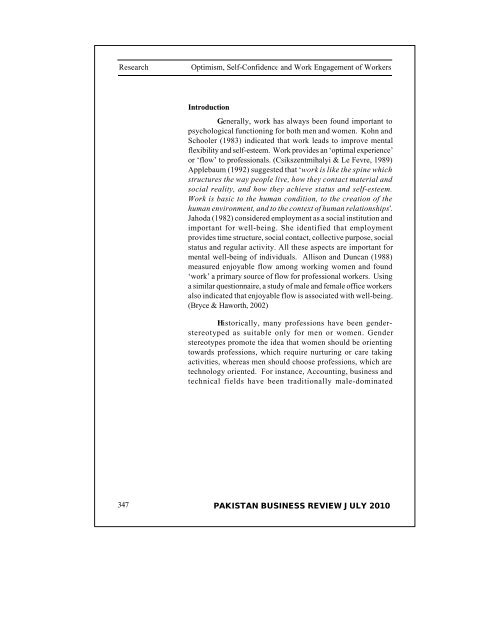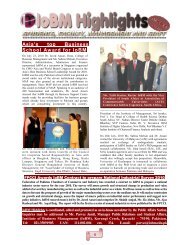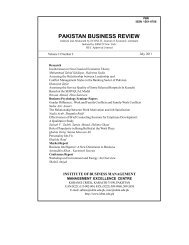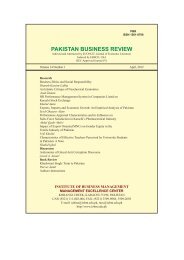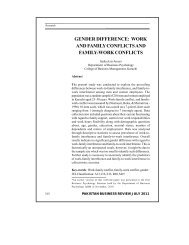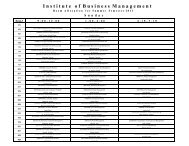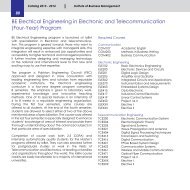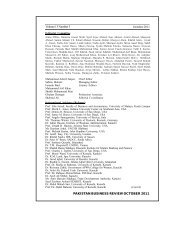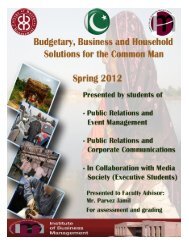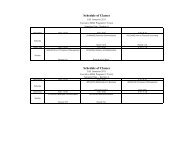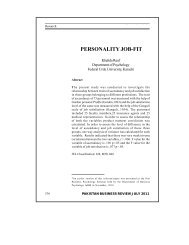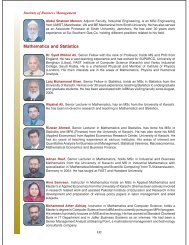Complete Volume - Institute of Business Management
Complete Volume - Institute of Business Management
Complete Volume - Institute of Business Management
You also want an ePaper? Increase the reach of your titles
YUMPU automatically turns print PDFs into web optimized ePapers that Google loves.
Research<br />
Optimism, Self-Confidence and Work Engagement <strong>of</strong> Workers<br />
Introduction<br />
Generally, work has always been found important to<br />
psychological functioning for both men and women. Kohn and<br />
Schooler (1983) indicated that work leads to improve mental<br />
flexibility and self-esteem. Work provides an ‘optimal experience’<br />
or ‘flow’ to pr<strong>of</strong>essionals. (Csikszentmihalyi & Le Fevre, 1989)<br />
Applebaum (1992) suggested that ‘work is like the spine which<br />
structures the way people live, how they contact material and<br />
social reality, and how they achieve status and self-esteem.<br />
Work is basic to the human condition, to the creation <strong>of</strong> the<br />
human environment, and to the context <strong>of</strong> human relationships’.<br />
Jahoda (1982) considered employment as a social institution and<br />
important for well-being. She identified that employment<br />
provides time structure, social contact, collective purpose, social<br />
status and regular activity. All these aspects are important for<br />
mental well-being <strong>of</strong> individuals. Allison and Duncan (1988)<br />
measured enjoyable flow among working women and found<br />
‘work’ a primary source <strong>of</strong> flow for pr<strong>of</strong>essional workers. Using<br />
a similar questionnaire, a study <strong>of</strong> male and female <strong>of</strong>fice workers<br />
also indicated that enjoyable flow is associated with well-being.<br />
(Bryce & Haworth, 2002)<br />
Historically, many pr<strong>of</strong>essions have been genderstereotyped<br />
as suitable only for men or women. Gender<br />
stereotypes promote the idea that women should be orienting<br />
towards pr<strong>of</strong>essions, which require nurturing or care taking<br />
activities, whereas men should choose pr<strong>of</strong>essions, which are<br />
technology oriented. For instance, Accounting, business and<br />
technical fields have been traditionally male-dominated<br />
347<br />
PAKISTAN BUSINESS REVIEW JULY 2010


